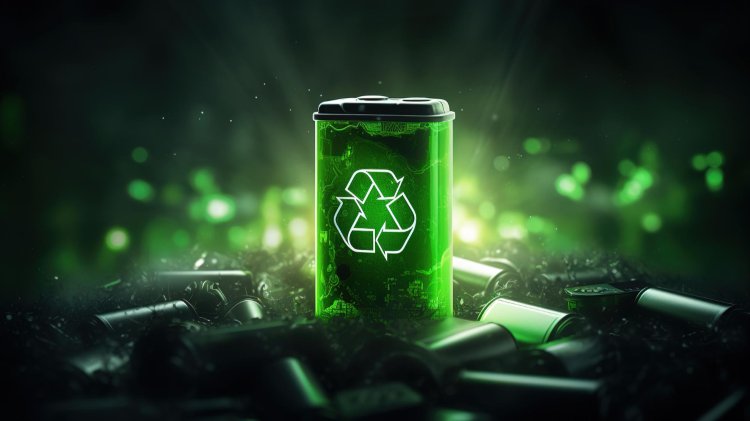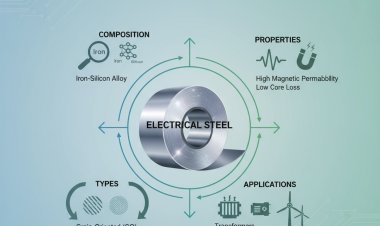Global Battery Recycling Market Size to Reach $50.9 Billion at a CAGR of 11.2% by 2030
Vantage Market Research expects the Battery Recycling Market to reach USD 50.9 Billion by 2030, exhibiting a growth rate (CAGR) of 11.2% during 2024-2030.

The Global Battery Recycling Market size reached USD 21.8 Billion in 2022. Vantage Market Research expects the market to reach USD 50.9 Billion by 2030, exhibiting a growth rate (CAGR) of 11.2% during 2024-2030.
Table of Contents
|
|
|
|
|
|
|
|
|
|
|
|
|
|
|
|
Introduction
In our ever-advancing technological landscape, the demand for batteries has skyrocketed. From powering our everyday devices to propelling the electric vehicle revolution, batteries have become integral to modern life. However, with this surge in usage comes a pressing concern – the environmental impact of improper battery disposal. Battery Recycling emerges as a crucial solution for waste management, conserving resources, and reducing pollution. In this blog, we'll explore the changing landscape of Battery Recycling, its benefits and the innovative processes shaping a more sustainable future.
Request Sample Report of Battery Recycling Market @ https://www.vantagemarketresearch.com/battery-recycling-market-2363/request-sample
Top Companies in Global Battery Recycling Market
- Call2Recycle (U.S.)
- Cirba Solutions (U.S.)
- Element Resources (U.S.)
- Umicore (Belgium)
- Accurec Recycling GmbH (Germany)
- American Battery Technology Company (U.S.)
- Contemporary Amperex Technology Co. Ltd. (China)
- Exide Technologies (U.S.)
- Aqua Metals (U.S.)
- East Penn Manufacturing Co. (U.S.)
Benefits of Recycling Batteries
Conservation of Non-Renewable Resources
The primary advantage of Battery Recycling lies in conserving non-renewable resources. By reusing old or waste materials, recyclers can save raw materials that are otherwise irreplaceable. This approach enables other manufacturers to utilize these resources for further innovations, fostering a circular economy.
Preventing Pollution
Improperly dumped batteries pose a significant threat to the environment. The chemicals within batteries can contaminate air, water, and soil, leading to pollution. Battery Recycling is a barrier, preventing these harmful chemicals from leaching into the environment and causing ecological damage.
Reducing Solid Waste
Recycling batteries allows for the creating of new products, eliminating the need for them to end up in landfills. This decreases the burden on waste management systems and helps to lower solid waste levels overall.
Energy Savings
The production of new batteries demands a considerable amount of energy. Recycling, on the other hand, consumes less energy, contributing to overall energy savings. Manufacturers can redirect this saved energy to other productive processes by opting for recycling.
Job Creation
The Battery Recycling industry creates job opportunities at various levels. The recycling process requires a skilled workforce, from collection and transportation to processing and manufacturing. Therefore, supporting Battery Recycling initiatives benefits the environment and contributes to economic growth through job creation.
Government Regulations
Recognizing the environmental impact of improper battery disposal, governments worldwide have implemented regulations to ensure proper handling. Batteries are designated as hazardous waste, mandating specific tasks in the order of waste reduction, recovery of valuables, and treatment of nonrecoverable wastes. These regulations emphasize the importance of cleaner products, processes, and the overall sustainable management of natural resources.
Lithium Battery Recycling: A Growing Frontier
Lithium Battery Recycling is a relatively recent but rapidly expanding process. Companies primarily focus on cobalt recovery due to its high cost, but some, like Accurec and Toxco, are also venturing into lithium recovery. With the increased lithium prices, refining this metal is expected to become more profitable. The continuous improvement of recycling procedures seeks to lower expenses related to recovered metals and increase efficiency.
As a relatively new frontier, lithium Battery Recycling promises a more effective and resource-saving future. The growing emphasis on environmental responsibility and sustainability is consistent with closing the resource loop.
Battery Black Mass Recycling: Paving the Way for Sustainability
Battery black mass recycling is gaining prominence as a supplement to virgin material supply and a means to reduce the carbon footprint of the battery supply chain. The process involves treating batteries post-mechanical separation and optional thermal treatment to recover nickel, cobalt, lithium, manganese, and copper.
The sustainable benefits of battery black mass recycling are impressive, with a significant reduction in embedded carbon, CO2 emissions, energy consumption, and water and air pollution. As the demand for zero-emission vehicles rises, the Battery Recycling industry is poised for new and prosperous growth opportunities.
Buy Now Our Battery Recycling Industry Report @ https://www.vantagemarketresearch.com/buy-now/battery-recycling-market-2363/0
EV Battery Recycling: Navigating the Electric Revolution
The global surge in electric mobility comes with a parallel increase in electric vehicle (EV) batteries. The projected retirement of over 100 million vehicle batteries in the next decade underscores the need for effective recycling strategies. EV Battery Recycling is crucial for waste management and creating a stable, resilient, and sustainable supply chain.
Several levels are propelling the growth of the battery-recycling industry:
Technological Progress: Advancements in recycling processes are enabling higher recovery rates, reducing greenhouse gas footprints, and improving overall economics.
Supply-Chain Stability: Automotive OEMs and cell producers prioritize supply-chain stability by securing local, recycled raw material volumes at stable prices.
Decarbonization and Ethical Sourcing: Automotive OEMs increasingly prefer recycled battery materials over newly mined ones due to significantly lower carbon emissions. This choice aligns with decarbonization goals and avoids supporting raw material extraction from conflict regions or through child labor.
Companies Leading the Charge
Several companies are at the forefront of the Battery Recycling revolution:
Umicore: With over 15 years of expertise in Battery Recycling, Umicore launched Battery Recycling Solutions in 2022. They plan a substantial scale-up with a 150,000-tonne Battery Recycling plant in Europe by 2026, incorporating proprietary metal extraction technologies for efficient and environmentally friendly recycling.
Ascend Elements and SK eco plant: In a $65 million venture, these companies collaborate on a 100,000-square-foot EV Battery Recycling facility in Hopkinsville, Kentucky. This initiative is expected to create jobs and supply materials for a separate battery-related operation in the same town.
Cirba Solutions and Call2Recycle: Cirba Solutions, a premier Battery Recycling and management company, is expanding its collaboration with Call2Recycle. This partnership focuses on processing post-consumer lithium-ion batteries, separating critical materials for reintegration into the battery supply chain. The initiative ensures traceability and transparency, contributing to a sustainable supply chain.
In conclusion, the Battery Recycling industry is evolving, which points to a change toward a more ecologically friendly and sustainable future. With technological advancements, government regulations, and the active involvement of companies, Battery Recycling is evolving into a critical player in the global push for a circular economy and reduced environmental impact. As consumers, policymakers, and industry players prioritize sustainability, the Battery Recycling revolution is set to play a pivotal role in shaping our world for generations to come.
Read Our Latest Press Release: Ethylene Carbonate Market - In-depth Analysis
Contact us
Eric Kunz
6218 Georgia Avenue NW Ste 1 - 564
Washington DC 20011-5125
United States Tel: +1 202 380 9727
Email: [email protected]
Website: Vantage Market Research


















